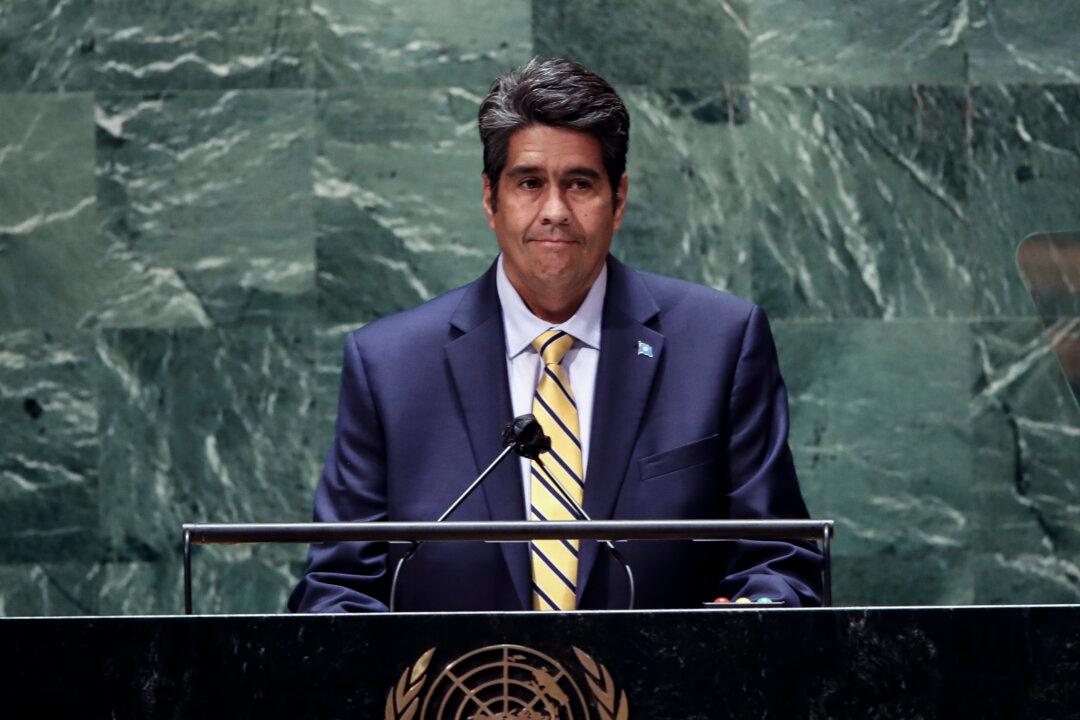Palau President Surangel Whipps Jr. said late on Aug. 15 that the Chinese Communist Party (CCP) has made good on its threat to leverage tourism to the Micronesian island, after he spoke openly about a Chinese cyberattack and refused to cut relations with Taiwan.
The CCP has exerted pressure on other Pacific island nations in recent years. In 2022, Beijing rolled out a plan to partner with 10 countries in a sweeping security and economic deal. However, the nations rejected the deal.





